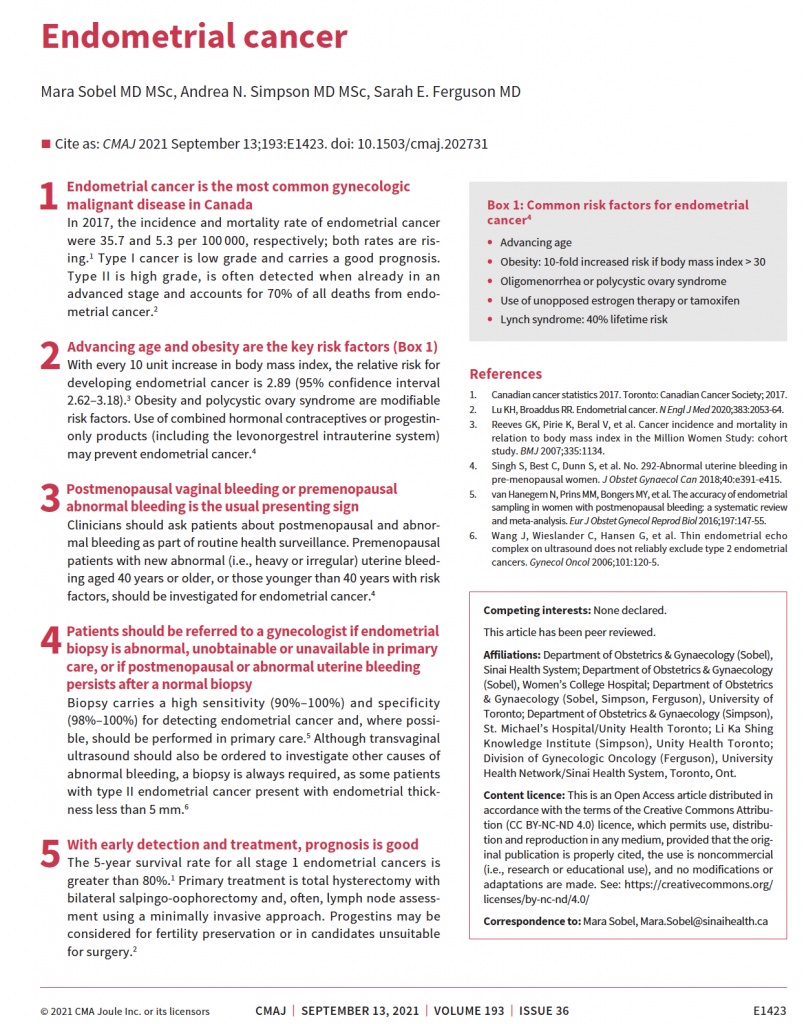
Endometrial cancer is the most common gynaecologic cancer and the 4th most common cancer overall in women. It represents 6% of all cancers in Canada.
Most (95%) cancers of the uterus arise from the lining of the uterus, called the endometrium. These are referred to as endometrial cancers. Rare uterine cancers can also arise from the muscle layer of the uterus (called the myometrium) or the stroma of the endometrium. These are referred to as uterine sarcomas, and are discussed separately.
The most important risk factor associated with endometrial cancer is excess estrogen which is highly associated with obesity. It can also be associated with use of estrogen supplements, hormone replacement therapy, and occasionally from estrogen producing tumors. The risk of developing endometrial cancer is highest in women over age 50. Certain genetic mutations can increase the risk of developing endometrial cancer. Our team of genetics experts can help patients determine if they have genetic risk factors.
There are several types of endometrial cancers, with each having a different clinical behaviour and treatment.
The majority of women with endometrial cancer will experience abnormal vaginal bleeding. Any vaginal bleeding after menopause needs to be discussed with a doctor.
The diagnosis of endometrial cancer may consist of several investigations:
Management of endometrial cancer is based on the type, grade and stage of the cancer. Most women are diagnosed with early-stage endometrial cancer and require surgery. In many cases, our expert surgeons can perform the surgery with state-of-the-art technology using a minimally-invasive (laparoscopy or robotic) approach. Our approach identifies and removes only the necessary lymph nodes. Women with advanced stage or grade of cancer may require additional treatment following surgery, such as chemotherapy and/or radiation.
Watch videos about minimally-invasive surgery here.

In some cases, women with endometrial cancer are young and wish to retain the ability to become pregnant in the future. At UHN, we have a devoted clinic to this unique patient population. Our Fertility Preservation in Endometrial Cancer Clinic is tailored to address the specific needs of these women.